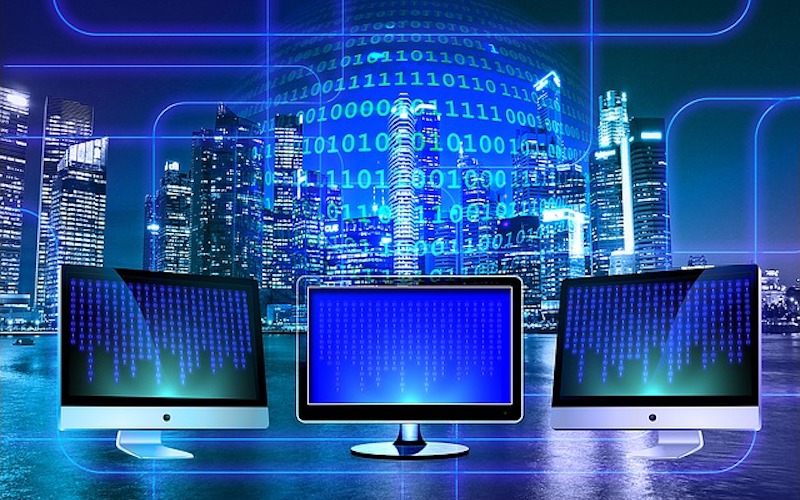Software innovations have long been the driving force behind the digital revolution, propelling us into an era of unprecedented technological advancement. In this blog post, we will embark on a journey through the digital frontier, exploring groundbreaking software innovations, their profound impact on various industries, and a glimpse into the future of software development. Join us as we uncover the transformative force of software innovation.
The Dawn of Software Innovation
Early Software Development
The history of software innovation can be traced back to the early days of computing when programmers manually coded instructions to perform specific tasks. The advent of programming languages, like Fortran and COBOL, simplified the process and laid the foundation for future software development.
Graphical User Interfaces (GUIs)
In the 1980s, graphical user interfaces (GUIs) revolutionized the way we interacted with computers. Innovations like the Apple Macintosh and Microsoft Windows made computing more accessible to a broader audience.
Internet and Web Technologies
The emergence of the internet and web technologies in the 1990s opened new avenues for software innovation. The World Wide Web, HTML, and web browsers transformed how we access and share information.
Industry Impact of Software Innovations
Healthcare
Software innovations have brought remarkable changes to the healthcare industry, from electronic health records (EHRs) to telemedicine platforms. Digital health solutions have improved patient care, diagnosis, and treatment.
Finance
The financial sector has seen a surge in fintech solutions, driven by software innovations. Mobile banking, digital payments, and blockchain technology are revolutionizing how we manage and exchange money.
Manufacturing
Software innovations, including automation and machine learning, have streamlined manufacturing processes. Smart factories and 3D printing are changing the face of production.
Education
Educational software and e-learning platforms have expanded access to quality education. Personalized learning and virtual classrooms are redefining how students and educators interact.
Entertainment
From streaming services to virtual reality gaming, software innovations have transformed the entertainment industry. Interactive media and immersive experiences are the new norm.
Transportation
Software innovations are reshaping transportation with autonomous vehicles and navigation apps. Electric vehicles and smart cities are on the horizon.
Communication
Communication tools like social media, messaging apps, and video conferencing have connected people globally. Software has made the world a smaller and more interconnected place.
Cutting-Edge Software Innovations
Artificial Intelligence (AI)
AI and machine learning are at the forefront of software innovation. Applications range from natural language processing and image recognition to autonomous robots and virtual assistants.
Internet of Things (IoT)
The IoT connects everyday devices to the internet, allowing them to communicate and collect data. This technology has applications in smart homes, healthcare, and logistics.
Blockchain
Blockchain technology is revolutionizing data security and transparency. Beyond cryptocurrencies, it has uses in supply chain management, voting systems, and more.
Augmented and Virtual Reality (AR/VR)
AR and VR technologies are changing how we experience the digital world. Applications extend from gaming to healthcare and education.
Quantum Computing
Quantum computing, still in its early stages, promises to solve complex problems beyond the reach of classical computers. It has implications for cryptography, drug discovery, and optimization.
The Future of Software Innovations
Ethical Considerations
As software innovations advance, ethical considerations become paramount. Issues like data privacy, bias in AI, and responsible technology use are central to shaping the future.
Customization and Personalization
Software innovations will continue to offer customized and personalized experiences. From tailored marketing to individualized healthcare, personalization is the future.
Collaboration and Connectivity
Collaboration tools and connected ecosystems will play a crucial role. The ability to work seamlessly across devices and platforms will be a standard feature.
Cybersecurity
With increased software innovations come greater cybersecurity threats. Protecting data, networks, and digital infrastructure is an ongoing challenge.
Sustainability
Sustainability will be a key focus in software development. Eco-friendly software solutions, energy-efficient coding, and reducing electronic waste will gain importance.
Conclusion
Software innovations have been at the forefront of the digital revolution, shaping industries, redefining communication, and enhancing our daily lives. The impact of software innovation on healthcare, finance, manufacturing, education, entertainment, transportation, and communication is undeniable.
As we look to the future, the possibilities are limitless. AI, IoT, blockchain, AR/VR, and quantum computing are poised to usher in a new era of technological advancement. However, ethical





